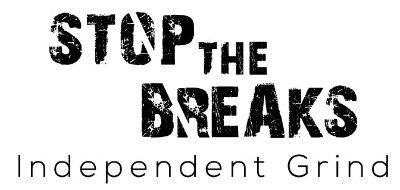
In ancient times, now exclusively established disciplines, medicine, dance, and rhythm were intertwined. Harvard Medical School’s convention on Music and Medicine: The impact of Healing Harmonies, has mentioned that ancient Greeks acknowledged the power of music in healing as it slows down the blood pressure and heart rate. You would be astonished to know that soothing music is played on themed online games such as BTV168 to calm the players and help them in making a reasonable gamble.
Ancient Greeks even assigned the same God, Apollo for music and medicine. Rhythm constitutes an integral part of the human body whether it relates to heartbeat, breathing, and nerves thumping subtly on the wrist. These things are etched by nature itself in our existence according to Barbara Else, Senior Advisor and Researcher at American Music Therapy Association.
How music helps in recovering from different disorders?
Researchers at McGill University in Canada found that listening to music releases Dopamine that helps in dealing with physical pain and mental state like depression. The Lancet Psychiatry revealed that listening to hip-hop music can make people sensitised towards mental health disorders.
Music can also reduce pain and soothe people who have taken surgery as found by a study published by the Brunel University, United Kingdom. The research was done through 72 random trials performed on 7000 patients who received any kind of surgery. People who listened to music endured pain more positively and felt less amount of pain as compared to the group that did not listen to music.
Music: Breaking glass ceilings in mental disorders
Parkinson’s disease
The internationally acclaimed journal NeuroRehabilitation published research presided by Lauren K. King of the Sun Life Financial Movement Disorders Research and Rehabilitation Centre at Wilfrid Laurier University, in Waterloo, Ontario in 2009.
The patients suffering from Parkinson’s Disease were administered vibroacoustic therapy for a short while. A group of 40 patients were exposed to a 30-hertz low-frequency vibration every alternative minute. They showed improvements with less rigidity in joints, reduced tremors, and better walking pace.
Alzheimer’s and Fibromyalgia
University of Toronto’s Music and Health Research Collaboratory have collaborated with researchers of Wilfrid Laurier University to expand the horizon of their research including thalamocortical dysrhythmia under the supervision of Lee Bartel. It is a distortion in the brain’s activity in the thalamus and frontal cortex which is also responsible for mental conditions like Alzheimer’s and Fibromyalgia along with Parkinson’s.
Bartel reveals that music therapy untangles and stabilises the disorientation in the brain. He is positive that the therapy will be a breakthrough in memory retrieval therapies and restoring speech and communication.
Recovery from brain injury through music
Music can help in recovering the grey matter from an injury such as a stroke. The University of Helsinki’s medical department carried out a study in 2009 on stroke patients. The researchers found that patients who listened to music for 2 hours in 24 hours displayed enhanced verbal memory and improved concentration levels. They were also cheerier and more motivated than patients who listened to an audiobook or listened to nothing.
Music can have a potent effect on speech recovery in stroke patients. In 2013, a group of researchers in Korea revealed that stroke patients treated with their novel neurologic music therapy for a month showed impressive development in the recovery of their speech and communication.
Memory and Cognitive Function
Music affects mental development which is often qualified as Mozart Effect. History is witness to the fact that many musical prodigies were exceptionally good at mathematics. This inspired researchers at the University of California situated at Irvine to study the effect of music on different parts of the brain especially the one responsible for improved cognitive function and spatial-temporal reasoning.
Music can help in memorising. It is proved by empirical evidence of a study published in the journal Memory & Cognition in 2013. The study talks about an observation made on 60 random people who were enrolled at learning Hungarian. The class was divided into two groups. One of them was assigned to learn phrases in a rhythmic fashion while others were told to do so reciting them again and again. The group that learned phrases with music was able to recall more accurately.
Challenges
However, the studies conducted so far have shown a shimmer of light but some results showing contradictory things have emerged, it is no surprise though. Different genres of music have a different kind of effect on people because of their personal liking of the music or what emotion it triggers for them.
For instance, low tempo classic music like Debussy’s Clair De Lune or Holst’s Venus the Bringer of Peace soothes people’s nerves. But these classical tunes may stir some memory for them which may be nostalgically happy or it can make them sadder. This may defeat the purpose of therapy altogether. Something from Nickelback orRed Hot Chilli Peppers makes people happy, but it fills listeners with adrenaline. Fast and high tempo music makes people’s heartbeats go faster. Listening to high decibel sounds may prove disastrous to people suffering from heart diseases. So, it is all about personal choice for music.



